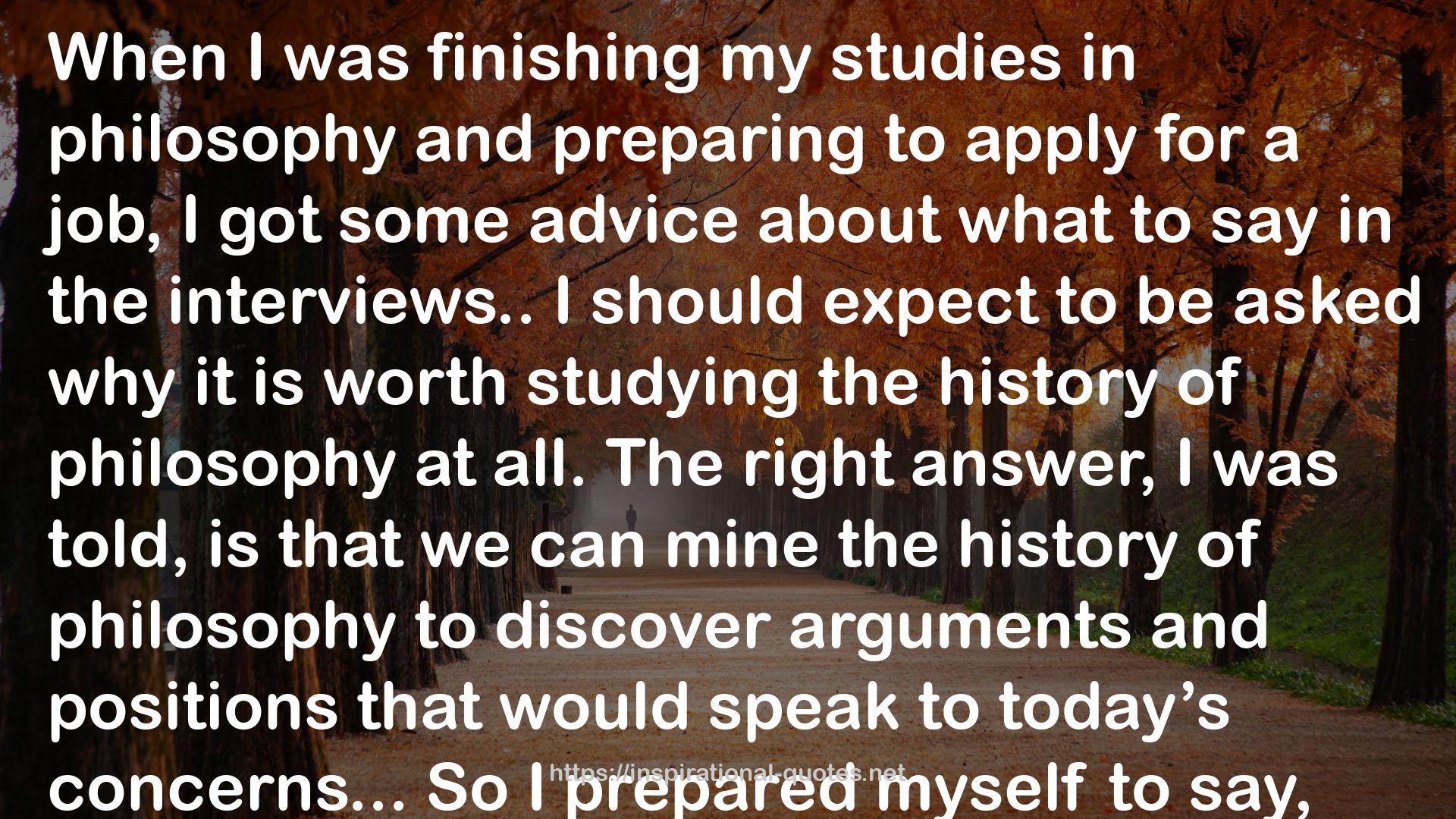" When I was finishing my studies in philosophy and preparing to apply for a job, I got some advice about what to say in the interviews.. I should expect to be asked why it is worth studying the history of philosophy at all. The right answer, I was told, is that we can mine the history of philosophy to discover arguments and positions that would speak to today’s concerns... So I prepared myself to say, preferably with a straight face, that contemporary philosophers of the 1990s could learn a thing or two from my doctoral dissertation.
In my heart, I never really believed that this is the only, or even the best, rationale for studying the history of philosophy. Certainly, historical texts have contributed to contemporary debates.. Others seem almost to transcend the time they were written… But to me, much of the fascination of the historical figures is how far they were from our ways of thinking, rather than how up-to-date we can make them seem... I find it fascinating that long-dead philosophers assumed certain things to be obviously true which now seem obviously false, and that they built elaborate systems on these exotic foundations. To be useful, historical ideas don’t always need to fit neatly into our ways of thinking. They can shake us out of those ways of thinking, helping us to see that our own assumptions are a product of a specific time and place. "
― , Philosophy in the Islamic World: Volume 1: 8th-10th Centuries
